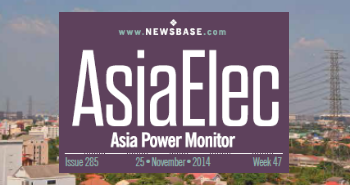Russia, Bangladesh navigate stresses over nuclear power plant loan payments

According to Bangladeshi media reports, Russia has demanded that Dhaka pay over $630mn to settle accrued interest payments for a loan used to fund the Rooppur Nuclear Power Plant (NPP).
Bangladesh which has recently seen its former Prime Minister Sheikh Hasina ousted, is under the authority of an interim government led by advisors including Nobel Laureate Muhammed Yunus. The interim government while inheriting the payment liabilities for the NPP are likely to not have been as familiar with the payment settlement mechanisms for the loan as its predecessor led by Hasina.
The interest payment due on September 15, is likely to be missed despite the funds being available, as the transaction requires careful circumvention of US sanctions on Russia. The loan extended by Russia under a government to government deal is a typical venture that the Russian state-owned nuclear power conglomerate offers to low income countries like Bangladesh.
‘Rosatom Overseas’ the subsidiary incharge of structuring the financing plan for Bangladesh’s first NPP, directed the funds via another Russian state-owned institution VEB.RF which functions as a hybrid between a state owned bank and investment fund. According to a report in The Business Standard, VEB.RF sent an official communique to Bangladesh’s Economic Relations Division on August 21 2024, asking for all outstanding interest payments to be deposited in the Shanghai branch of Bank of China.
VEB.RF was also ready to accept the payment designated either in US dollars or Chinese yuan. Both Rosatom Overseas and VEB.RF are heavily sanctioned entities on the designated lists of the US government which in turn makes any entity handling cross border payments and transactions involving them a target for secondary US sanctions. In 2022, Russia and Bangladesh agreed to structure the payments for the loan partially to be repaid in yuan and Bangladesh’s own taka (BDT).
Following this, Dhaka has made several payments to Russia designated in yuan to service the loan, channelled through China’s analogue to the Western SWIFT payments messaging service, Cross-border Interbank Payment System (CIPS). However the payments have been a contributing cause to Bangladesh’s foreign exchange reserve (forex) crisis whereby Dhaka was unable to keep a stock of foreign currencies than it was paying out to service its various international obligations.
The forex crisis had negative second order effects on Bangladesh’s domestic and international economic prospects as the country eventually sought a bailout loan from the International Monetary Fund (IMF). Navigating the political chaos and economic difficulties Bangladesh’s new interim government reportedly asked for an extension not only for the interest payments but also the first principal repayment instalment which is due in 2027. However, according to The Business Standard, the request for deferment was denied by VEB.RF.
The unsubstantiated narrative about former Prime Minister Sheikh Hasina and her family embezzling $5bn with Russian complacency, from the funds earmarked for the Rooppur NPP has again surfaced in Bangladesh's press.
That said, counter narratives quoting Russian government press releases refuting the allegations have also been published prominently, which indicates that public opinion in Bangladesh has not yet fully turned against Russia.



Follow us online